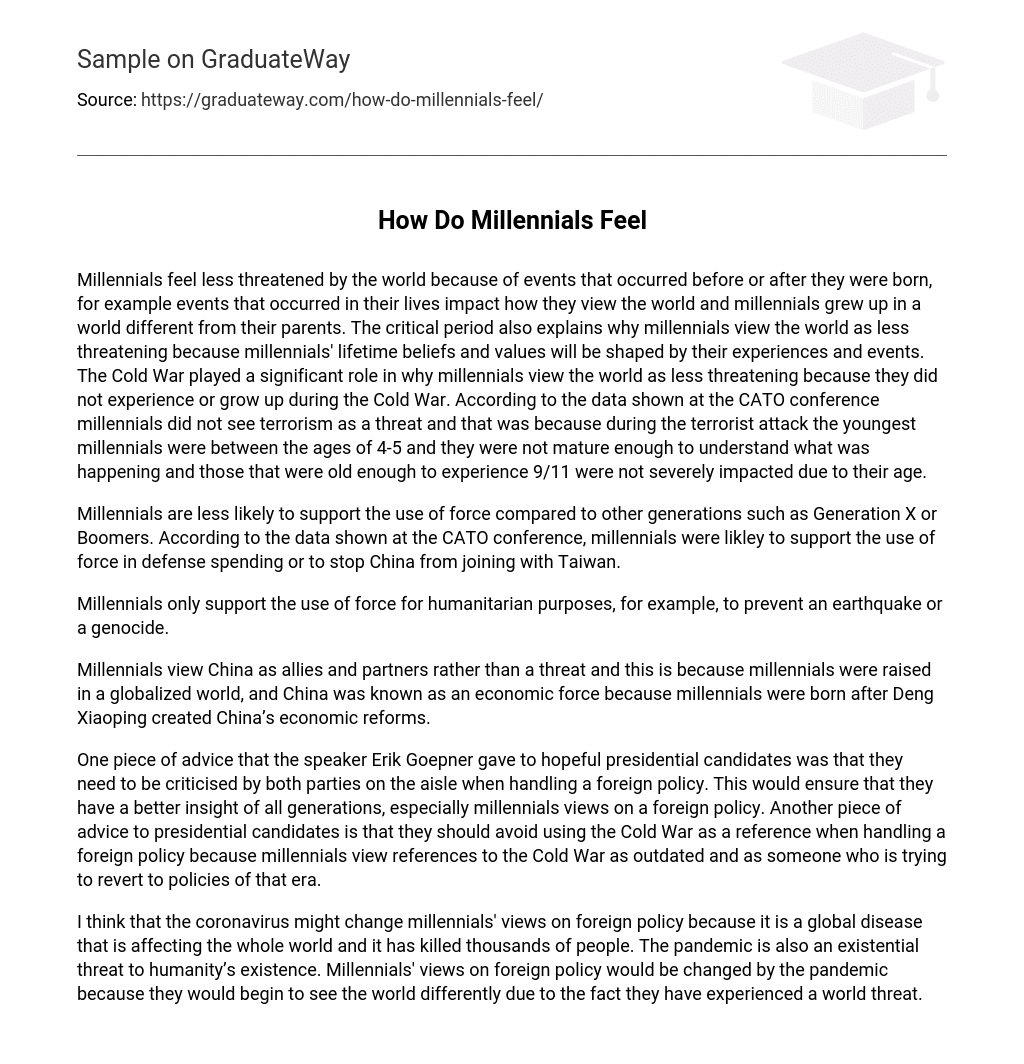Millennials feel less threatened by the world because of events that occurred before or after they were born, for example events that occurred in their lives impact how they view the world and millennials grew up in a world different from their parents. The critical period also explains why millennials view the world as less threatening because millennials’ lifetime beliefs and values will be shaped by their experiences and events. The Cold War played a significant role in why millennials view the world as less threatening because they did not experience or grow up during the Cold War. According to the data shown at the CATO conference millennials did not see terrorism as a threat and that was because during the terrorist attack the youngest millennials were between the ages of 4-5 and they were not mature enough to understand what was happening and those that were old enough to experience 9/11 were not severely impacted due to their age.
Millennials are less likely to support the use of force compared to other generations such as Generation X or Boomers. According to the data shown at the CATO conference, millennials were likley to support the use of force in defense spending or to stop China from joining with Taiwan.
Millennials only support the use of force for humanitarian purposes, for example, to prevent an earthquake or a genocide.
Millennials view China as allies and partners rather than a threat and this is because millennials were raised in a globalized world, and China was known as an economic force because millennials were born after Deng Xiaoping created China’s economic reforms.
One piece of advice that the speaker Erik Goepner gave to hopeful presidential candidates was that they need to be criticised by both parties on the aisle when handling a foreign policy. This would ensure that they have a better insight of all generations, especially millennials views on a foreign policy. Another piece of advice to presidential candidates is that they should avoid using the Cold War as a reference when handling a foreign policy because millennials view references to the Cold War as outdated and as someone who is trying to revert to policies of that era.
I think that the coronavirus might change millennials’ views on foreign policy because it is a global disease that is affecting the whole world and it has killed thousands of people. The pandemic is also an existential threat to humanity’s existence. Millennials’ views on foreign policy would be changed by the pandemic because they would begin to see the world differently due to the fact they have experienced a world threat.





